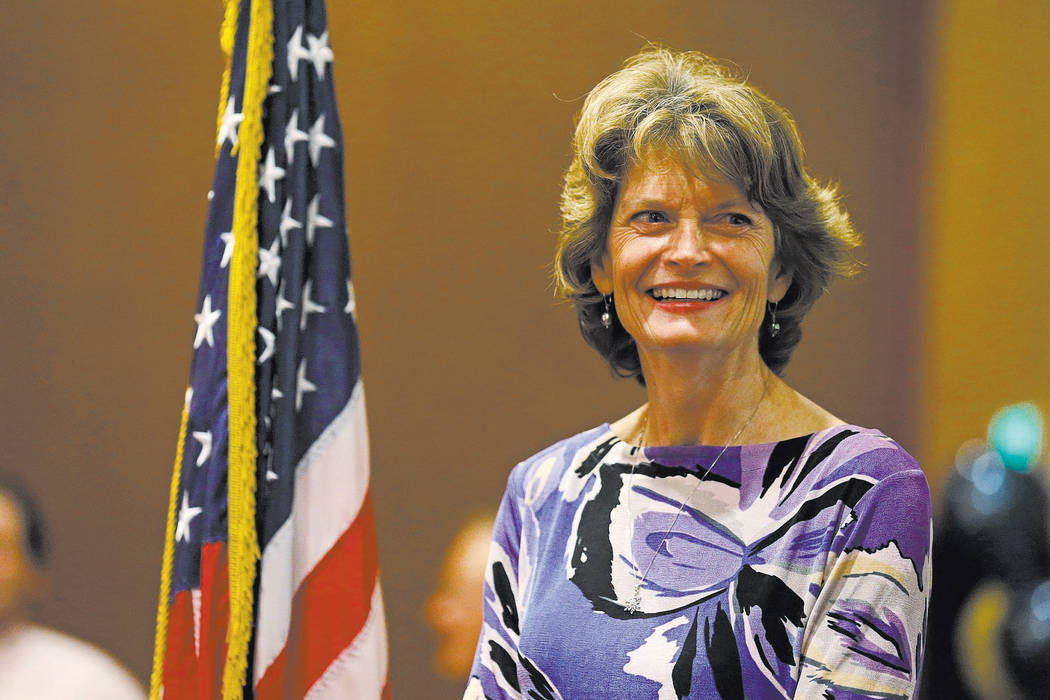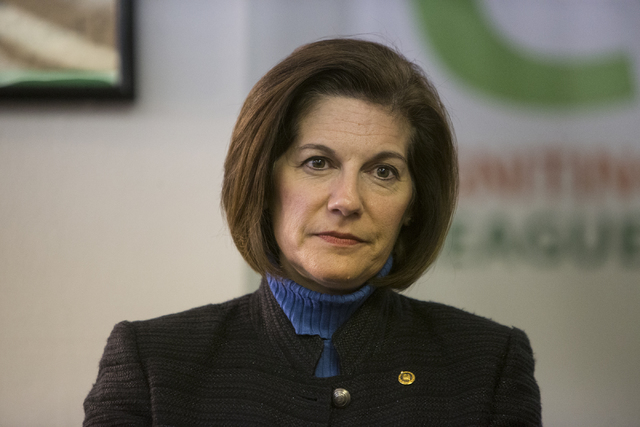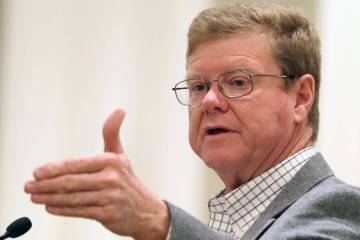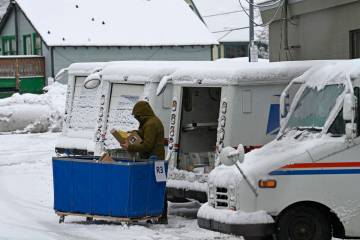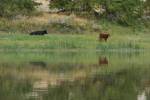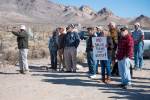Senate rolls back rule on public lands imposed by Obama administration
WASHINGTON — The Senate voted mostly along party lines Tuesday to kill a federal rule that gives a voice to the American public on the use of public lands in Western states — including 47.5 million acres in Nevada.
Republicans sought the rollback of the planning rule imposed by the Obama administration, arguing that it shifted the decision-making of use of lands in the West to bureaucrats in Washington.
Conservationists and Democrats argued it protected those lands from commercial interests.
All GOP senators from Western states, including U.S. Sen. Dean Heller, R-Nev., were co-sponsors of a resolution calling for the repeal of the regulation. It was sponsored by U.S. Sen. Lisa Murkowski, R-Alaska, the chairwoman of the Senate Energy and Natural Resources Committee.
The bill passed 51-48. Heller voted for the resolution. U.S. Sen. Catherine Cortez Masto, D-Nev., voted against it.
The U.S. House of Representatives approved a similar resolution in February on a 234-186 vote. That resolution, sponsored by U.S. Rep. Lynn Cheney, R-Wyo., was co-sponsored by U.S. Rep. Mark Amodei, R-Nev.
U.S. Reps. Ruben Kihuen, Jacky Rosen and Dina Titus, all Nevada Democrats, voted against the resolution last month.
Following Senate action, the legislation now goes to President Donald Trump, who has endorsed and led a rollback of federal regulations since he took office.
OBAMA REGULATIONS REPEALED
Senate and House Republicans moved at the beginning of the year to begin repeal of some Obama administration regulations and actions.
The Obama administration regulation the Senate addressed Tuesday changed a process at the Bureau of Land Management that had been in place for 34 years.
Murkowski said the change effectively “shut down the reasonable use of federal lands.”
She said the rule, which was implemented in December, shifted decision-making from BLM directors in western states to lawmakers and bureaucrats in Washington, far removed from public land use issues.
Murkowski said the rule would curtail grazing, mineral development and other uses of public lands, costing western states jobs and economic opportunity.
“If you live in one of the 12 western states, you are impacted,” Murkowski said before the vote.
The regulation , known as the “Planning 2.0” rule, would have applied to future use of all 245 million acres of public lands. There are 47.5 million acres of public land in Nevada, according to BLM.
USE OF PUBLIC LANDS
Conservationists applauded the new planning rule as a protection of public lands against commercial interests.
U.S. Sen. Maria Cantwell, D-Wash., the ranking Democrat on the Energy and Natural Resources Committee, said the rule provides transparency on how public lands are used.
She said the BLM rule encouraged participation from states, local and tribal interests, and continued a “bottom-up review” of public land use from directors in the states. Outdoors sporting groups, hunters and conservationists favored the rule, she said.
“Our public lands must not be territories owned and operated for the sole benefit of the oil, gas and mining industries,” Cantwell said before the vote. She joined other Democrats in voting against repeal.
The BLM rule was designed to expedite planning and give a voice to users, including hunters, anglers, ranchers and communities, more input in the process.
It was finalized after two years of development by BLM. The rule was favored by conservation groups, which asserted that BLM was too slow in giving the public notice of new development and changes to use on public lands.
Cortez Masto said she favored the regulation because it “had the opportunity to bring more people to the table.”
The repeal of the rule was allowed under the Congressional Review Act, a law that enables Congress to roll back regulations after 60 legislative days after enactment.
Contact Gary Martin at 202-662-7390 or gmartin@reviewjournal.com. Follow @garymartindc on Twitter.



